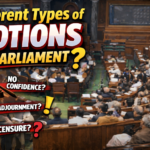National Council for Transgender Persons

The Ministry of Social Justice and Empowerment has constituted the National Council for Transgender Persons, a requirement under the Transgender Persons (Protection of Rights) Act, 2019. Representatives from five states or Union Territories, on a rotational basis, will be members of the commission.
The Social Justice Minister would be the chairperson of the Council and members would include officials of the Ministries of Health and Family Welfare, Home Affairs, Housing and Urban Affairs, Minority Affairs, Human Resources Development, Rural Development and Labour and Employment, the Department of Legal Affairs, the Department of Pensions and Pensioners Welfare and the NITI Aayog.The council also includes five nominated members from the transgender community.
The council would work with States to ensure that transgender welfare boards are set up in all States and essential needs of the community, like housing, food, healthcare and education are met.It will advise the central government on the formulation of policies, programmes, legislation and projects with respect to transgender persons; monitoring and evaluating the impact of policies and programmes designed for achieving equality and full participation of transgender persons; reviewing and coordinating the activities of all the departments; redressing grievances of transgender persons; and performing such other functions as prescribed by the Centre
LEARNING FROM HOME/ WITHOUT CLASSES/BASICS
THE TRANSGENDER PERSONS (PROTECTION OF RIGHTS) ACT, 2019
The Bill prohibits discrimination against a transgender person including denial of service, unfair treatment in education, employment, healthcare, enjoyment of goods, facilities, opportunities available to the public, right to movement and right to reside.
As per the legislation, no government or private entity can discriminate against a transgender person in employment matters including recruitment and promotion.
The Act gives definition of transgender person as a person whose gender does not maych with the gender assigned to that person at birth and includes trans-man or trans-women, person with intersex variation, genderqueer and person having such socio-culture identities as Kinner, hijra.
It also gives transgender persons a “right to self-perceived identity” — but requires them to register with the government if they want to be officially recognized as “transgender. The bill makes abusing transgender people a punishable offense with a jail term from six months to two years.
In 2014,Indian Supreme Court’s landmark decision decriminalize homosexuality; recognized transgender as a third, separate identity and ruled that Indians have the right to choose their gender.The Supreme Court of India has diluted Section 377 of the Indian Penal Code, which was first enacted in 1860 and ranks gay sex alongside bestiality as a crime, the law violated the right to equality enshrined in the constitution and was being used as a ‘weapon of discrimination’.




0 Comments